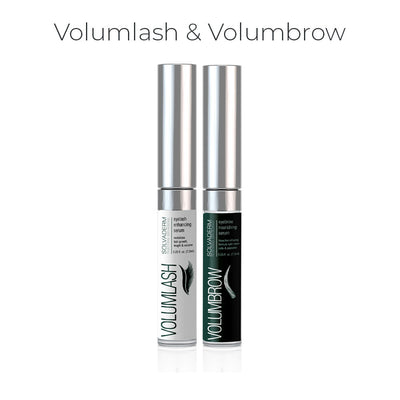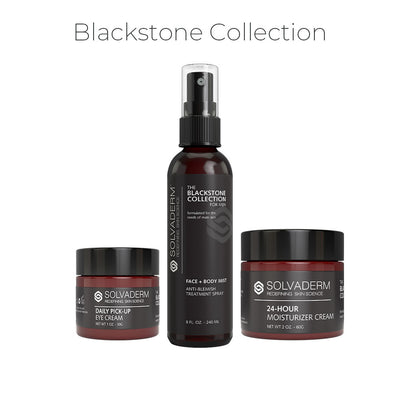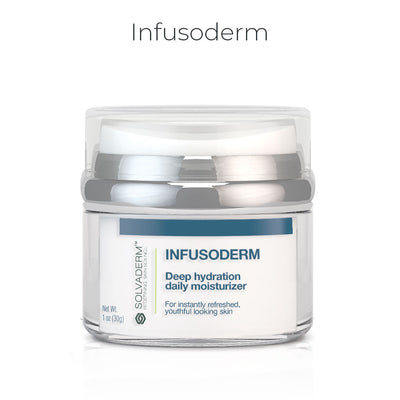Your eyelashes play an important role in your overall appearance. If you notice your eyelashes start to fall out, then you may feel concerned. Lashes shed naturally, which usually is not a cause for concern. However, losing lashes excessively may be a sign of something else. In this article, we’ll take a closer look at habits that can cause your eyelashes to fall out. We’ll also go into more detail about why we lose lashes and when you can expect an increase in shedding.
Why Do We Lose Lashes?
You have eyelashes on both the upper and lower eyelid. According to scientific reports [1], the upper eyelid has up to 160 lashes, with as many as 80 strands on the lower lash too. Lashes are divided into multiple rows.
When you notice you have a few lashes that fell out, the first response may be concern. You may feel worried about losing all your lashes, but it’s important to understand that this is actually a natural process. Each lash strand lasts for only about three months, then falls out. New lashes are growing all the time, so even if you notice a few lost lashes, they’ll be growing back soon.
However, there are cases where eyelashes falling out may be related to a serious health condition; it may even affect your eyes or a specific part of your body. For example, a health condition known as alopecia does not only affect your scalp but can also cause problems with hair growth in your eyelashes and eyebrows.
How Many Eyelashes Do You Lose In A Day?
The natural shedding process generally causes you to lose about one to five eyelashes every day. That’s the general answer when asking how many eyelashes you lose in a day. In most cases, you won’t even notice the fact that you are losing lashes. With this said, if you are losing more than five eyelashes every day, then you should take some time to investigate the problem. This may be a sign of madarosis, which can signal the presence of a more concerning health-related issue.
Understanding Your Lash Shedding
When it comes to losing eyelashes, there are two things that you have to take into consideration. If you are losing them naturally, you’ll notice only a few lashes fall out daily. This is part of their natural process. Lash shedding at a more excessive level, however, is not considered natural. Let’s take a closer look at when lashes tend to shed more and how their growth cycle works.
When Is The Lash Shedding Season?
Most people will notice more shedding in their eyelashes at two specific times every year. This includes spring, as well as autumn. While your lashes will continue to shed throughout the entire year, they will be more noticeable during these two seasons.
What Is The Natural Lash Shedding Cycle?
Your lashes go through two stages in every cycle. The first stage, which is the growing phase of your strands, takes about four to eight weeks. Once the lash strand reaches the end of this stage, it stops growing. This stage is also called the catagen phase where the lashes gradually start to fall out. Generally, your lash strands last for up to four months, then fall out.
Common Habits For Eyelash Hair Loss
While there are many reasons for eyelashes falling out, it’s important to note that, in many cases, the problem lies with a few of your habits. We are going to take a closer look at common habits and issues in your everyday life that can cause eyelashes to fall out.
- Excessive Rubbing and Friction: Rubbing your eyes is one of the most important things to consider here. Whether it's from irritation or tiredness, the friction you cause when you rub your eyes can result in the breakage of eyelashes. This can accelerate the process of eyelashes falling out and can even have an impact on their regrowth.
- Allergic Reactions: It is also possible for allergic reactions to be the problem. This generally happens when you use a makeup product with ingredients that triggers an allergic reaction. Swelling and redness are common in the areas where you experience this reaction, and it may also lead to excessive shedding.
- Bacterial Infection: An infection that affects the area around your eyelashes is also a potential cause. This type of infection can affect your hair follicles. If you have an infection, you’ll usually notice signs of blepharitis [2], which is a term used to describe eyelid inflammation.
- Sleeping with Mascara on: Your eyelashes require hydration, and when they dry out, it’s easier for them to break off. This is why you should not sleep with your mascara on. If you are asking, “Why are my eyelashes falling out?”, then in this case, it’s likely due to the fact that the mascara dries your lashes out.
- Excessive Lash Combing: Combing your eyelashes is a good idea, but not excessively. When you notice you are shedding eyelashes, consider how much you comb them. Excessive combing can lead to their breakage.
- Using Eyelash Curlers: Eyelash curlers are actually quite popular, but serve as another reason for people to wonder why their eyelashes are falling out. The heat from these curlers can actually cause damage to your eyelashes and break them off.
- Using Waterproof Mascara: The use of waterproof mascara helps to ensure tears, rain, and splashes of water won’t affect your look. Yet, this can also be the reason for eyelashes falling out, as the chemicals used in waterproof mascara can be damaging in the long term.
If you’re wondering why your eyelashes are falling out, it’s important to start with the habits we just discussed. This will give you an initial view of factors in your daily life that may be contributing to excessive eyelash loss.
Can You Reduce How Many Eyelashes You Lose A Day?
If you are concerned about eyelashes falling out, then it is time to consider ways to avoid it. The first step is to identify the problem. Take a look at the habits we talked about, and consider if any of these might be behind the excessive shedding of your eyelashes.
Self-care is really important when it comes to reducing the loss of eyelashes. Take care of your body and make sure you effectively manage your stress. Some people notice hair loss when they are struggling to cope with stress in their lives. This is due to the consistent presence of cortisol in your body [3], which can have an adverse impact on your hair follicles.
You should also consider how your diet affects hair growth. Certain nutrients may help to stimulate hair growth. Some foods have been associated with an increased risk of hair loss. In one study [4], researchers also confirm that a nutrition-deficient diet can result in hair loss. This type of hair loss can happen all over your body and can affect your eyelashes too.
Frequently Asked Questions
What helps eyelashes grow back?
Taking better care of your eyelashes can help. Stop rubbing your eyes and use a high-quality product, such as the VolumLash Nourishing Eyelash Serum, to help protect your lashes and ensure they can grow properly.
What does it mean when you lose a lot of eyelashes?
When you ask the question: “Why are my eyelashes falling out?”, it’s important to consider various habits that might be causing this problem. Eyelash curlers, sleeping with your mascara on, and many other factors can contribute to a significant loss of lashes.
At what age do eyelashes stop growing?
Many people will find that their eyelashes continue to grow back after they fall out, even when they enter their 50s. There is no specific age when they stop growing but may become thinner and grow slower over time.
Conclusion
Losing eyelashes is a natural process. In fact, you tend to lose lashes every day, but in very small amounts. When lash shedding becomes more noticeable, however, then it’s important to consider what might be the cause. In many cases, the problem lies with specific habits on your side. Addressing these habits can help to reduce lash shedding and ensure your lashes continue to grow and go through their natural cycles.
References
1] ↑https://www.ncbi.nlm.nih.gov/pmc/articles/PMC9870835/
2] ↑https://www.mayoclinic.org/diseases-conditions/blepharitis/symptoms-causes/syc-20370141
3] ↑https://pubmed.ncbi.nlm.nih.gov/27538002/
4] ↑https://pubmed.ncbi.nlm.nih.gov/28243487/









